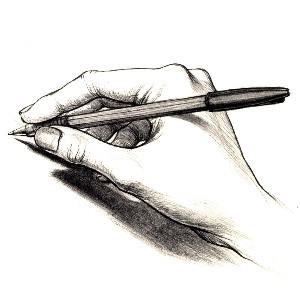
HATHA YOGA (ASANA), MEDITATION (DHYANA), BREATHWORK (PRANAYAMA)
"Among all traditional forms of advanced learning, the university is the only one that has succeeded in prying loose the acquisition of knowledge from advancement in sensual self discipline."
As noted in the course description we will be integrating somatic (body-based) learning practices into our study. All equipment will be provided and no experience is necessary. Although mats are available for checkout with your student ID from the CRC, you might want to bring your own mat. Bring a notebook or journal especially dedicated to reflections on yoga practice, as well as the body maps (see below), to all sessions. Inquiries regarding body sensing are a required component of our work.
You may not arrive late for yoga sessions.
See the yoga reading list (also listed on the week-by-week schedule). Annie Barrett relies heavily on the weekly readings in her facilitation of our common sessions, so it is crucial that you do the readings before coming to class.
Somatic awareness assignment
To every yoga workshop and to every Wednesday seminar bring a notebook that contains pages of “body maps.” You can fashion these pages as you wish; the only restriction is that you must have a place for putting notes and images on the front of the body and on the back of the body. You can use a standard chiropractor’s representation of a body, you can make an outline of your own body and reduce it to notebook size or …… At the end of each yoga session and after the dyad with which we’ll begin each Wednesday seminar, you’ll have the chance to note, on a new body map, your somatic responses to these practices.
The noun "body map" comes from the phenomenon of "body mapping" which is the conscious and unconscious mapping of language, emotions, experiences, etc., onto the body. This mapping affects how we use our bodies; it even determines parts that we tend to use, effects over-use and mis-use in some areas, and leaves some parts of the body ignored. An article on the Alexander Technique http://www.drizzle.com/~stacyg/HTMLBodyMap.htm
comments on “the importance of having an accurate understanding of how the various parts of our body fit together” this way: “‘If you change what you think, you can change how you move. And if you change how you move, you will change what you feel.’ Body mapping works directly on the ‘thinking’ end of this equation - the only end with any real ‘leverage’ for making changes. By changing our conceptions of how our parts fit together, we can change how we move them. The accompanying feeling can be one of enormous relief - and fascination with the wisdom underlying our creation.” You should use the body maps to reflect on these classroom experiences that will interrupt the habitual ways in which you use your body.
In your portfolios, include your yoga journals, public versions of body maps, and a 200-600 word reflection on what you learned from these practices and your maps. This reflection should begin with reference to Don Johnson’s work on somatic education:
Don Johnson, "Sitting, Writing, Listening, Speaking, Yearning: Reflections on Scholar-Shaping Techniques," from Body Movements: Pedagogy, Politics, and Social Change, Shapiro and Shapiro, eds., Hampton Press, 2002. Available at http://donhanlonjohnson.com/newsite/pages/articles_sitting.html
Dyads
Some part of each yoga practice will be done in pairs. The body is a highly charged site in modern Western society. Yoga, even done alone, sometimes brings up memories and experiences that have been, in our everyday lives, encapsulated, disguised, repressed, sidelined, ignored…. Working with another person—being touched by another person—sometimes exacerbates that aspect of yoga practices. You should raise any concerns with Annie Barrett, the yoga workshop facilitator, or with your faculty. One of the student habits this program will interrupt is the habit of going to school as if none of us had bodies. Remember that one premise of the program is that true learning is fully embodied.
You should not do the dyad work in yoga workshop with your “editor of first resort,” your dyad partner from the peer groups. Pick a new partner each time. As always, pay attention.
Equipment
The yoga equipment is a “commons” for the college; it is a resource many people use. Here are some common sense guidelines that will help preserve the commons:
- Arrive early enough to get a mat from the checkout counter, if need be, and to get equipment you will need for the workshop.
- Equipment you should take to your mat: one strap, two blocks, one or two blankets.
- Before taking the equipment from storage, note carefully how it is arranged: the blocks are neatly stacked and stored in boxes, the straps are rolled and placed carefully in a bag, and the blankets are neatly folded and stacked. After the practice, return all equipment to its original storage place in its original condition.
- If you notice that the yoga mat you checked out is dirty or smelly, mention that to the people at the checkout counter. They will clean the mat before others use it.
Practice
You should practice each day. B. K. S. Iyengar, in his most recent book, Light on Life, says that daily practice is essential, and who would disagree with a master? But, as Iyengar also says, daily practice should not be a daily drudge. Daily practice for most of us will not mean a 90 minute class. Start with 12-15 minutes a day. Just note, in your yoga journal and perhaps also on your body maps, your daily experiences. If you miss a day, no excuses, no problem: begin your daily practice again the next day.
Annie Barrett offers a leisure education class. This offering is unconnected to "Awareness: Writing and Renunciation," but if you are interested, see
http://www.evergreen.edu/recreation/leisureeducation.htm#172



